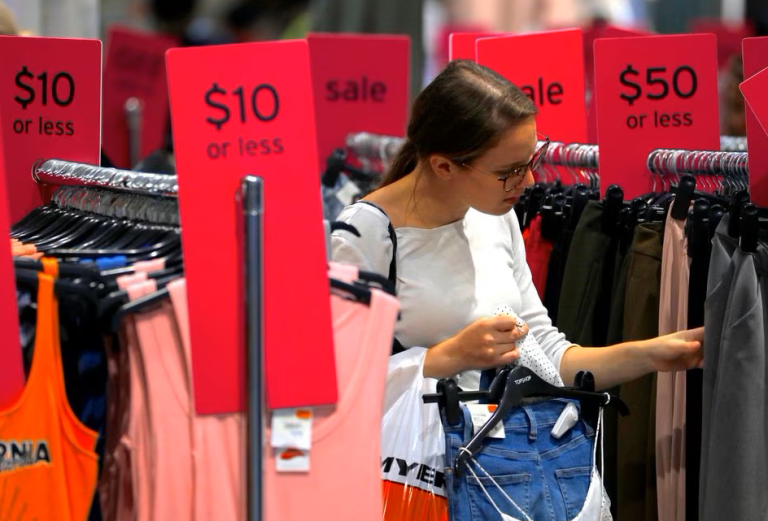
SYDNEY, (Reuters) – A measure of Australian consumer sentiment rose in January for the second straight month, as a break in a painful cycle of interest rate rises likely provided temporary relief for borrowers.
The Westpac-Melbourne Institute index of consumer sentiment released on Tuesday rose 5.0% in January, the largest monthly gain since April 2021 and building on a gain of 3.0% in December. However, the index reading of 84.3 still means pessimists greatly outnumber optimists. Westpac chief economist Bill Evans said one likely explanation for the lift in confidence is that January is the first month that did not see an interest rate hike by the Reserve Bank of Australia since April.
“While that was because there was no RBA Board meeting in the month rather than an explicit decision by the Bank to leave rates unchanged, the break in the tightening cycle looks to have provided some relief,” said Evans. “If so, we should be cautious about reading the January sentiment rise as part of a continuing trend.”
The RBA has raised rates by a whopping 300 basis points to a decade-high of 3.10% since May when they were at a record low of 0.1%.
Futures have priced in a two-third probability of an additional 25-basis-point hike in the February policy meeting, and imply a peak rate of around 3.76%.
For respondents with a mortgage, confidence jumped 10.7% compared to a 6.6% rise for renters and a 8.5% gain for those who own their homes outright. Westpac’s index on the outlook for house prices also showed a gain of 4.4% in January from December, though a majority still thought it was a bad time to buy.
Measures of family finances compared with a year ago edged up 1.7%, while the outlook for finances over the next 12 months bounced 6.6%. The index of the economic outlook for the next 12 months jumped 10.2%, and the outlook for the next five years climbed 2.9%.
Westpac’s measure of whether it was a good time to buy a major household item rose 3.6%, but was still down almost 21% on a year ago.
A separate survey from ANZ also showed a small rise just last week, although the bank cautioned that spending data has turned weak in the first week of 2023.





